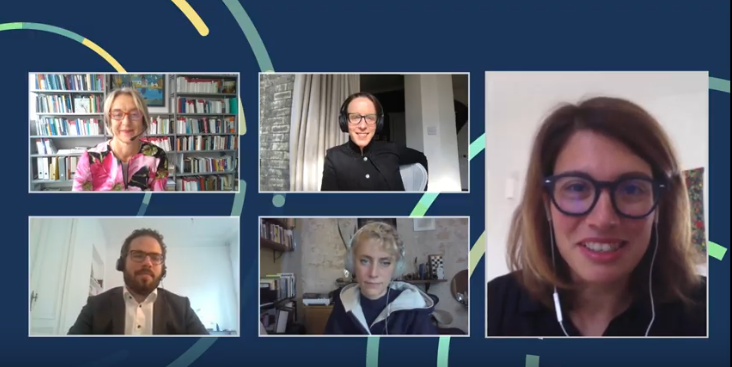On Monday, I had the pleasure to moderate the opening panel of the NGI Summit (full video here). It was a roundtable about the data economy with Ingrid Schneider (Professor of Political Science at the University of Hamburg), Sylvie Delacroix (Professor in Law and Ethics at Birmingham Law School and Fellow at Alan Turing Institute and Mozilla), Olivier Bringer (Head of the NGI Unit at DG Connect) and Jaya Klara Brekke (assistant professor at Durham University and founder of Cobox).
Discussing “the data economy” in less than one hour is quite an ambitious plan. It is a discussion about our everyday, since sensors, devices and apps blend into our everyday practices, and experiences are increasingly digitally mediated. In it, economic value is generated from the accumulation of data – personal or not – and the capacity to create predictions based on them.
It was a fruitful discussion because we did stick to proposals and not just to Big Tech demolition. From my notebook:
– In different economic models for the data economy, we find a tension still to be solved between data as common and data as an asset. Sandboxes for experiments could help;
– There is a need for bottom-up empowerment structures, and they must concern groups, not just individuals. Data trusts could be a way to share data in the common interest while addressing social vulnerabilities;
– We need to do better than consent and innovate along with GDPR directives;
– If Europe does not want to be imposed a model for the data economy, it needs a framework in place. The EU Data Strategy is about facilitating the circulation and exploitation of data, for instance through the creation of 9 data spaces, the release of APIs promoting the reuse of public datasets by SMEs and specifying regulation to exchange data B2B and B2gov;
– Bottom-up projects require fundings for acting the transformation across many areas, but many funds are very startup oriented. There is a lot of focus on business model innovation, but so far, there is not much funding support to experiment with new sustainability models;
– The relational value of data needs to have more space: this is the essence of digital sovereignty, not just more control, but fairer data flows.
Everybody agreed that the next step is experimenting with intermediaries like data trustees for the transition to a more fair data economy, mediators between big players and individuals that can pair economic sustainability and public interest.
